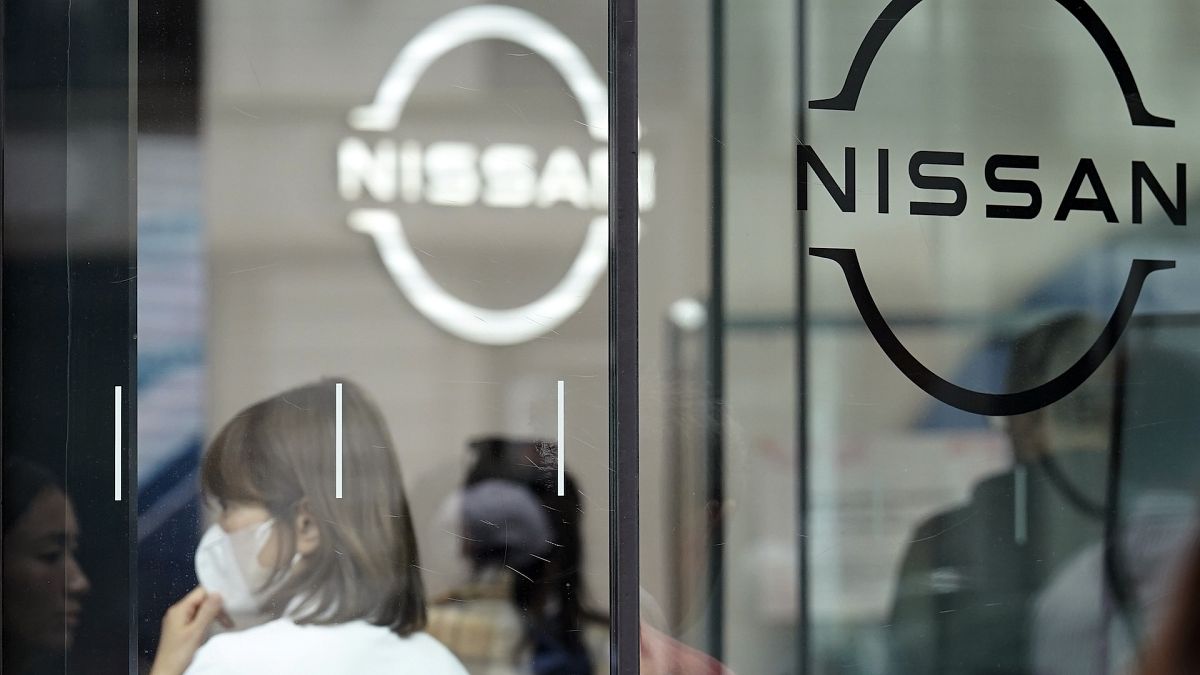European jobs at risk as car maker Nissan reveals major cutbacks

The Japanese car maker, which has seen profits plunge, is to cut 9,000 jobs around the world in an effort to save more than €2bn.
Nissan announced its decision to cut about 6% of its global workforce of more than 133,000 employees as it released figures showing a marked loss for the latest quarter of its financial year.
Vehicle sales have plummeted while costs and inventory ballooned.
Chief Executive Makoto Uchida revealed he is to take a 50% pay cut to take responsibility for the poor results, while promising that a turnaround was coming which, as well as cutting staff, will include a plan to slash global production capacity by 20%.
Uchida declined to say which regions will be affected by the cuts or give specifics. Nissan’s major European plant is in Sunderland in the UK but it also has divisions in France, Belgium and Spain.
For the latest quarter to September, Nissan made a 9.3 billion yen (€55.7m) loss, a reversal of the 190.7 billion yen (€177.3bn) profit recorded for the same quarter last year.
Quarterly sales fell to 2.9 trillion yen (€17.6bn), down from 3.1 trillion yen.
Uchida acknowledged Nissan did not respond quickly or flexibly enough to global changes, including market tastes and soaring raw material costs.
“I take this situation very seriously,” he told reporters. “Nissan will restructure its business to become leaner and more resilient.”
American market not a success
Nissan models did not sell well in the US, one of the most lucrative car markets in the world and one that has recently been dominated by Ford, Toyota and Tesla.
All aspects of Nissan’s operations and plans will be under review, Uchida said.
Nissan now expects to sell 3.4 million vehicles around the world in the financial year ending in March 2025, down from an earlier projected 3.65 million vehicles. The new number is about the same as Nissan sold over the same period the previous year.
Nissan is appointing a chief performance officer tasked with turnaround decision-making, who will begin his job next month.
No dividends will be paid out.
Related
ForexLive European FX news wrap: Euro stays buoyed, markets wait…
Headlines:Markets:EUR leads, AUD lags on the dayEuropean equities lower; S&P 500 futures up 0.1%US 10-year yields down 2.7 bps to 4.255%Gold up 0.4% to $2,9
European shares fall as tariff uncertainties weigh; US jobs data…
(Reuters) - European shares fell on Friday as frequent shifts in U.S. trade policy throughout the week resulted in risk aversion, while focus remained on th
US economy added 151,000 new jobs in February; Euro on…
US jobs report releasedNEWSFLASH: Hiring across the US economy picked up slightly at the start of Donald Trump’s second term in office.The US economy added 15












